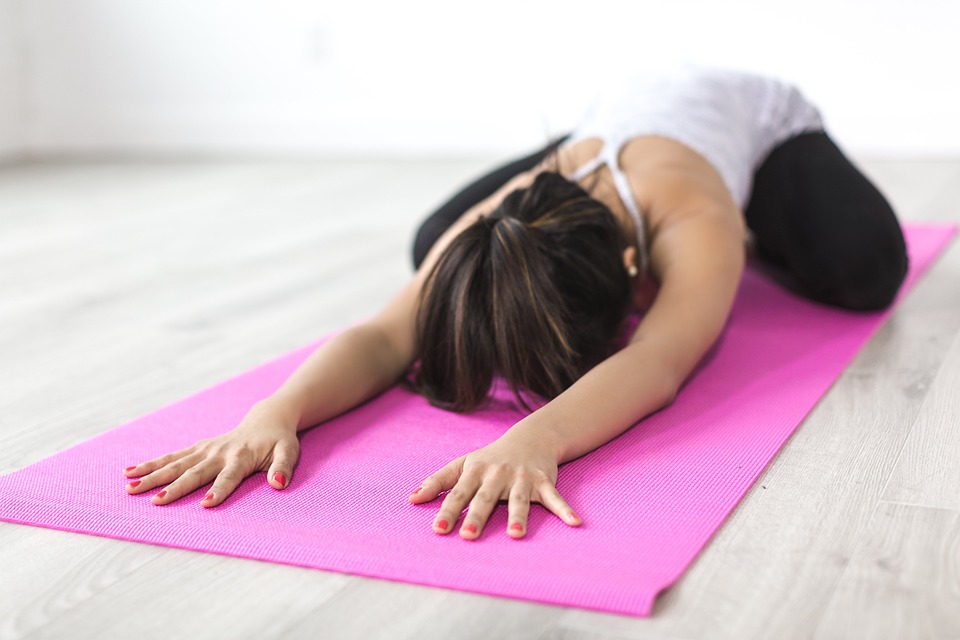I remember the first time I figured out what my piriformis was, and how having a tight piriformis and IT band affected my movements. I had just started running hard core. As a former dancer, we stretched our hamstrings, inner thighs, the “dancer muscles”. But a piriformis or IT band was not something a DANCER experienced as this was not a muscle that was targeted in ballet, or other forms of dance.

The PAIN, was a knot in the right side of my hip/tush. It began to radiate all the way down the side of my right leg. It even affected my lever length so that the right leg felt “shorter”. I eventually learned how to do stretches such as “parvritta trikonasana”, and a bastardized version of pigeon on my back to target this muscle group (the external rotators).
Also, as a swimmer, and runner, my calf muscles will get super tight. This eventually pulls on my achilles tendon. Having torn my right achilles tendon in a freak accident in 2002, I can tell you keeping the achilles tendon happy can make the difference between being able to walk or not. Hand to foot calf stretches both standing and supine, as well as forward bend, and parvritta trikonasana, will take care of the problem. I also flex my foot against a wall before starting my run.
If my knees ache, it is usually because my quads are tight. I start with alternating kick ups from down dog into lunges to warm up. I also do natarajasana, which provides me an open angled quad stretch.
My students will often have problems targeting their abdominals. Tight hamstrings and hip flexors are usually the problem. I will do a “half lunge” where they press through the psoas to release it, then stretch the ham/calf in a forward bend while flexing the front foot, and keeping the standing knee right under the hip.
For other hard to read groups, such as under the shoulder blades, nothing beats a foam roller. I body surf along the foam roller, and hold until the knot dissipates. I have a chapter in “Healthy Things You Can Do In Front of the TV” complete with photos to describe how to target key muscles.

Stretching is often a forgotten, and yet necessary part of fitness. It makes the difference between proper kinesthetic alignment and gait, or movement that is off-balance, which can cause injuries. Not to mention, it just feels good before or after an intense workout. It also aids in recovery, so that you can be ready for your next challenge. Even die-hard couch potatoes need to stretch. And many stretches can be done at work or at home. See my lovely book for more examples of how to keep your body functioning at its best.
Kama Linden has been teaching fitness for over 2 decades. She has taught strength, step, pilates, vinyasa yoga, senior fitness, and has worked with clients and students of all ages and fitness levels. She is certified by AFAA Group Exercise and NASM CPT, as well as 200 hour Yoga. She has a BFA in Dance from University of the ARTS. Her new book, “Healthy Things You Can Do In Front of the TV” is now on sale on Amazon, Barnes & Noble, and Kindle.
